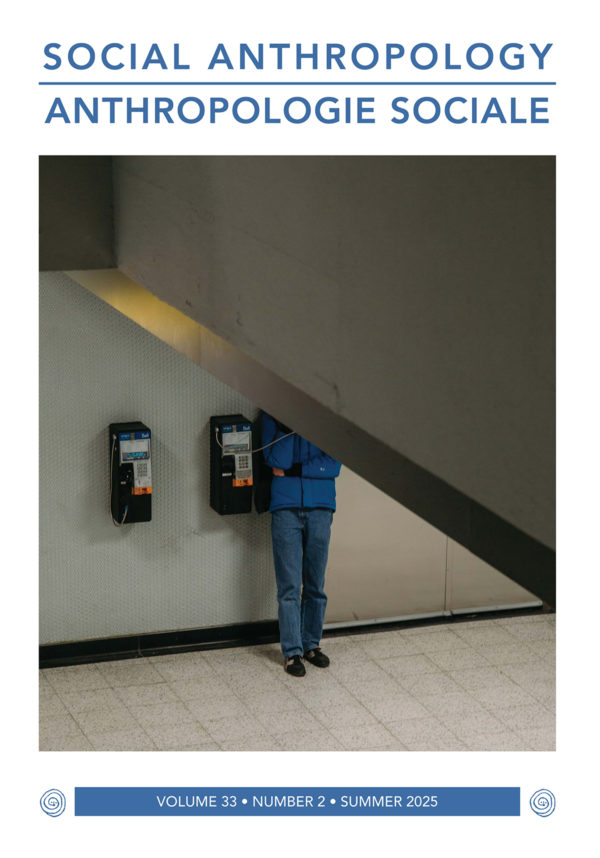For fans of bibliometric indicators, we have some exciting news: according to the Google Scholar Metrics 2025, released in July of this year, Social Anthropology/Anthropologie sociale ranked as 6th among socio-cultural anthropology journals. As per the 2025 report, the number of submissions to the journal increased by 67% with an acceptance rate of 54%. With out new editorial team, we have accelerated our response time drastically, reducing wait-time for authors. Almost every month the journal receives expression of interests, concept note or developed proposal for a forum. The topics included AI and academia, conflict and social reproduction, fascism and capitalism, or degrowth). These are dealt with on a rolling basis during editorial meetings.
We encourage you to delve into the two open-access issues published this year, 33/1 (March) and 33/2 (June). Besides many original articles grounded in solid ethnographic research, you will find a special issue on how environmental changes affect indigenous childhood. There is a special forum – a unique feature of our journal – on a collaborative pedagogical experiment, where landscape plays a central role, and an obituary for Thomas Hylland Eriksen, an influential scholar and former president of EASA. As is customary for our journal, these issues feature book reviews by many dedicated members of the association. While several journals have recently ceased publishing them, the book review section continues to provide an invaluable platform for showcasing emerging voices and perspectives (here and here).
Attaining and maintaining the quality of the articles, and even their influence that Google Scholar Metrics purports to gauge bibliometrically, is only possible through the hard work of the journal’s community – its authors, reviewers and readers. Thank you all! We hope that all EASA members see the SA/AS journal as our collective resource. So, if you receive an invitation to review an article from us, we urge you to accept it or at least consider it seriously and suggest other potential reviewers. Only such collaboration from EASA members will expedite the peer review process within the association’s flagship journal. Finally, we hope that all of you will continue to support and read the journal, finding its content useful for your own work.
EASA Newsletter 89-1025
Social Anthropology/Anthropologie sociale journal editors’ note
Social Anthropology/Anthropologie sociale ranked as 6th among socio-cultural anthropology journals!
EASA Newsletter 89-1025
